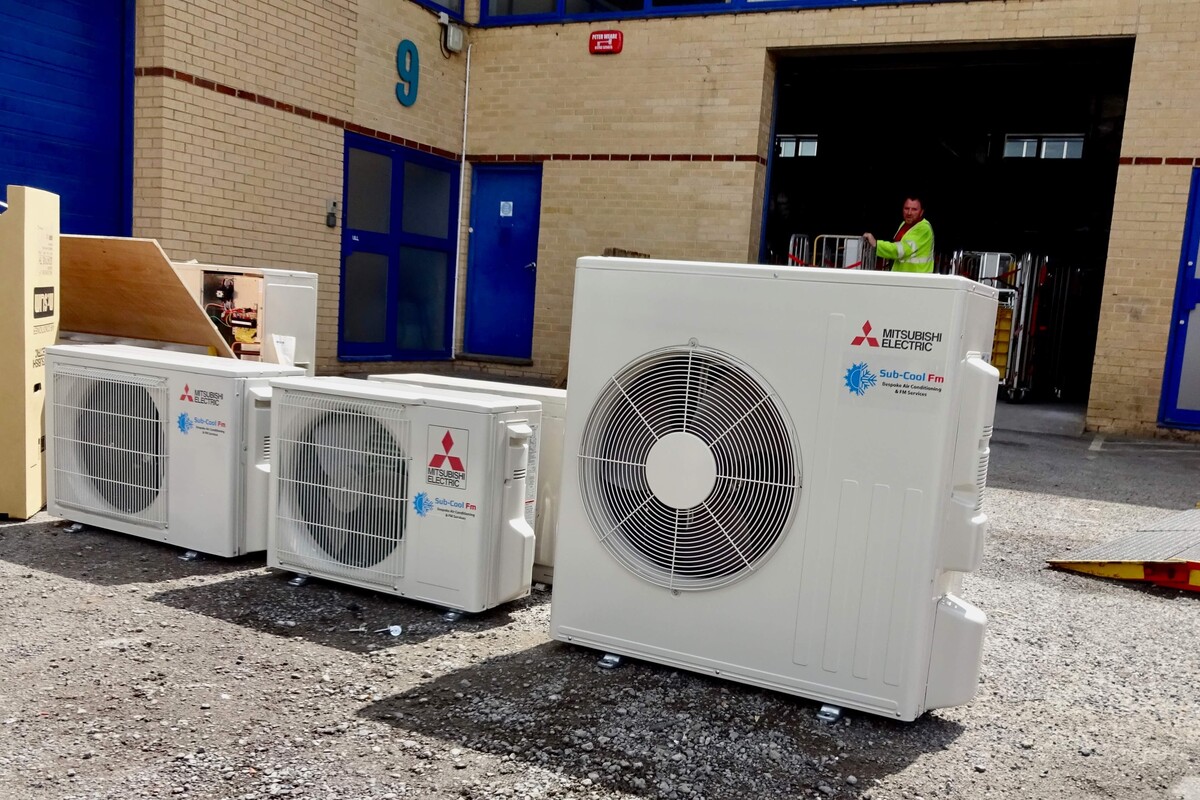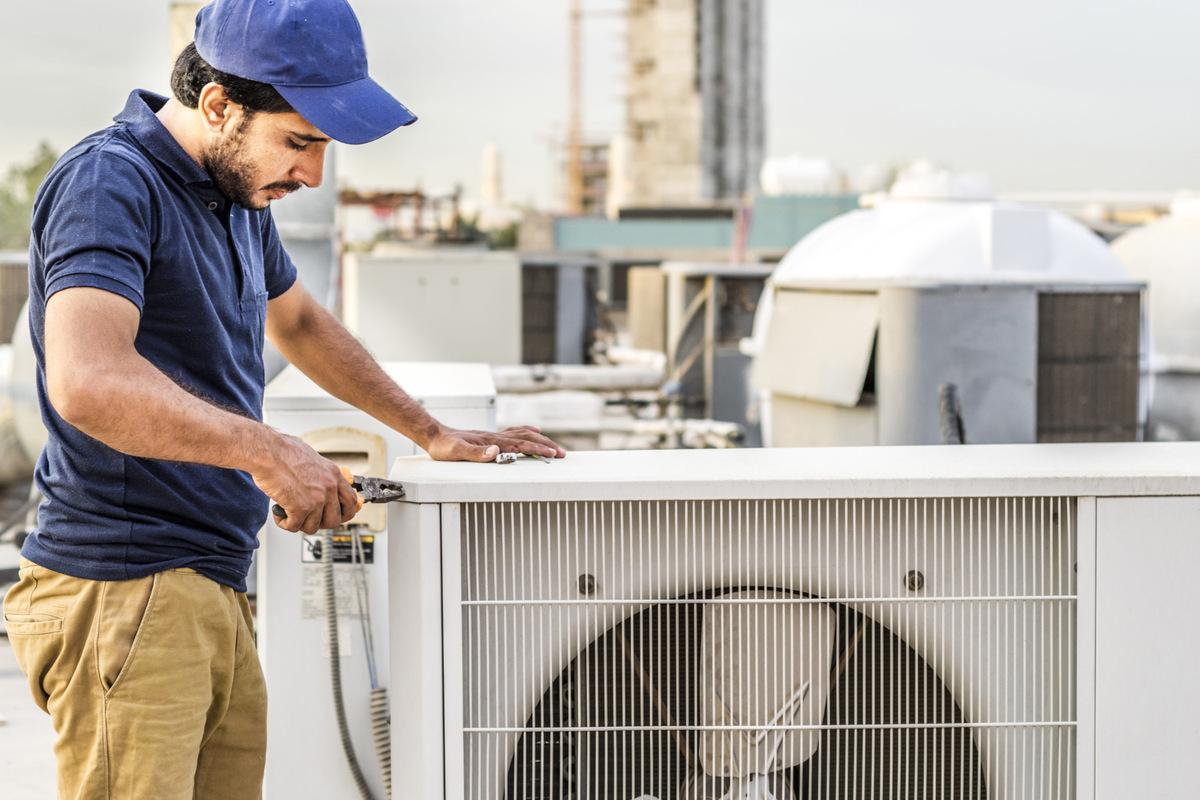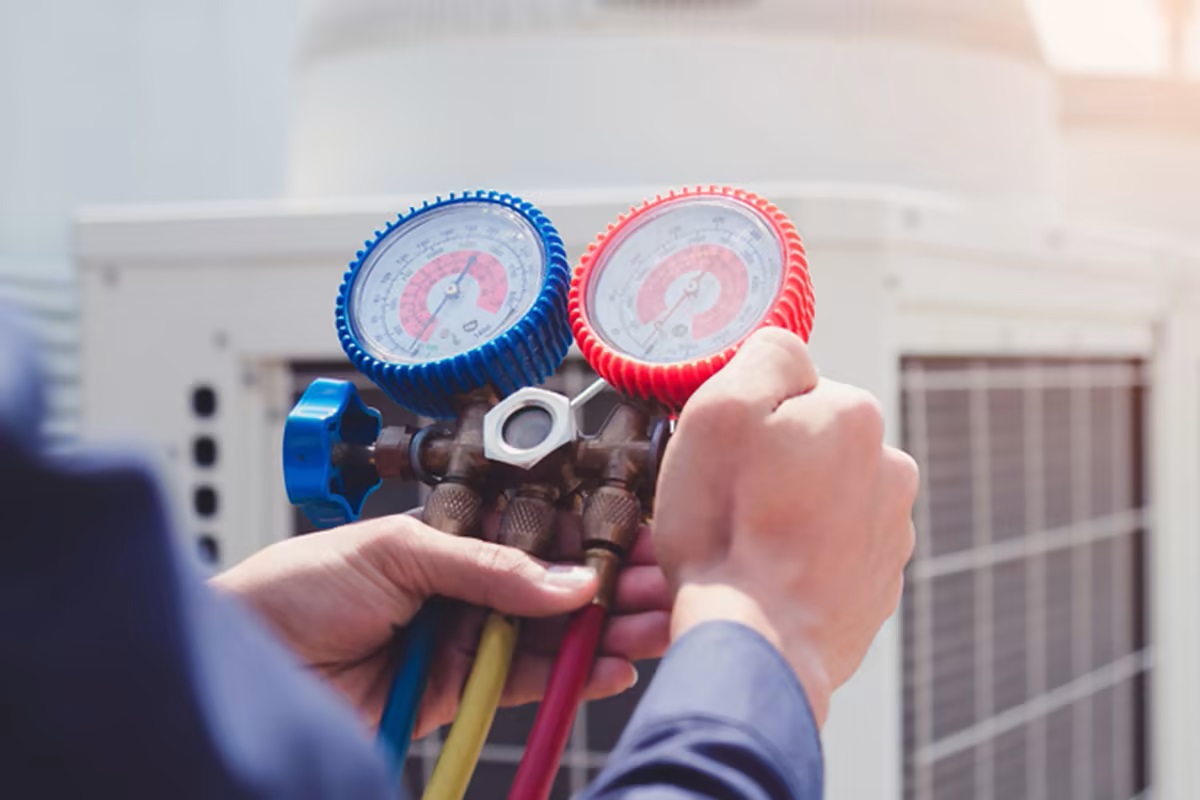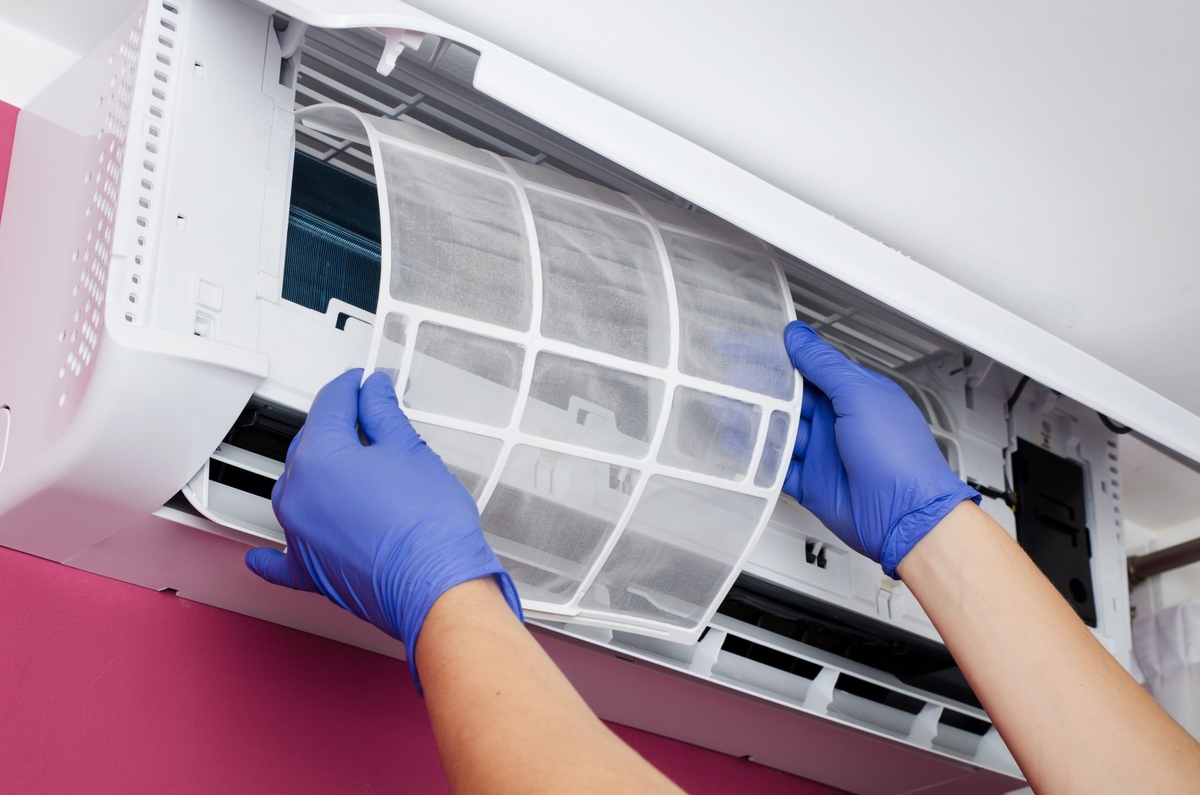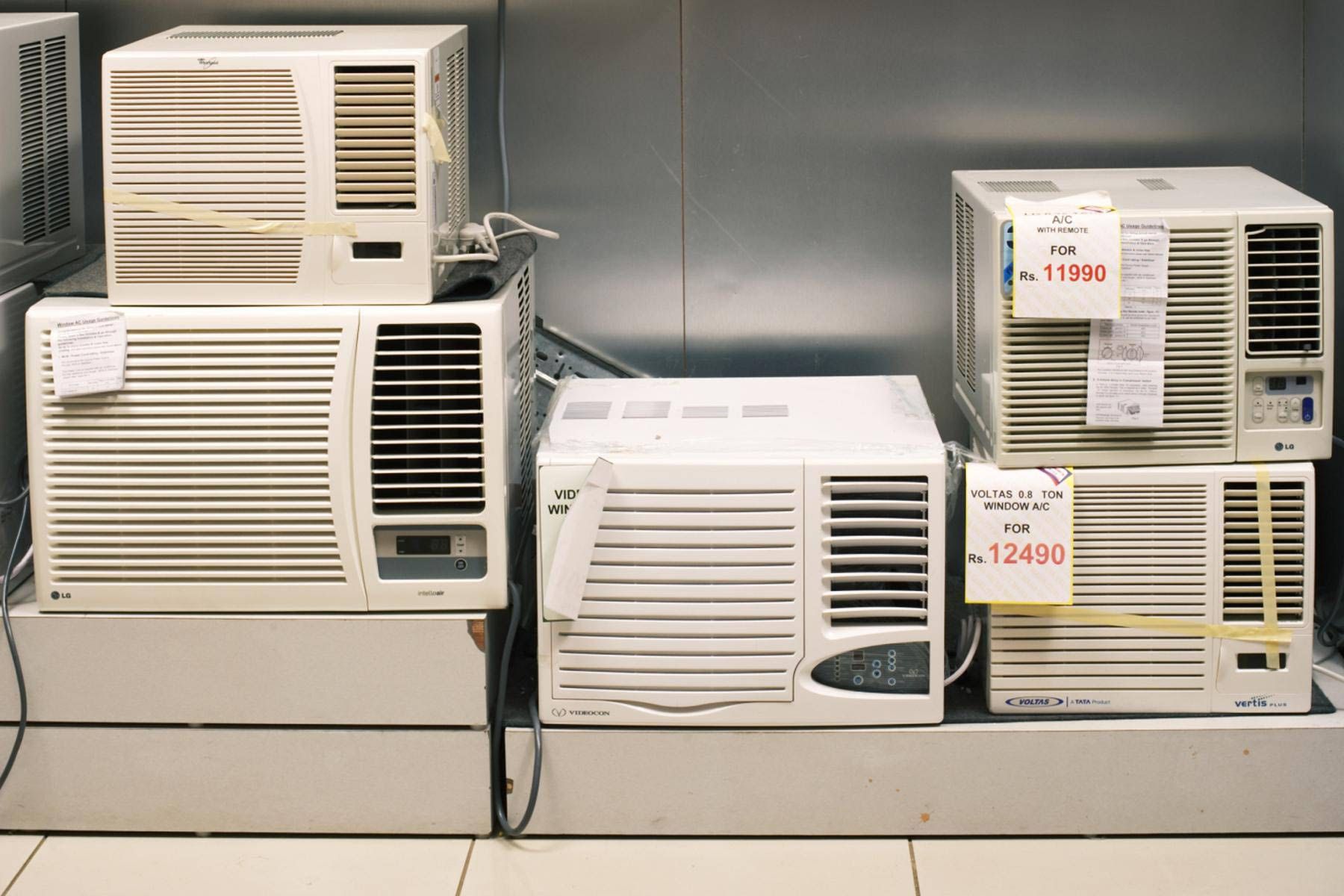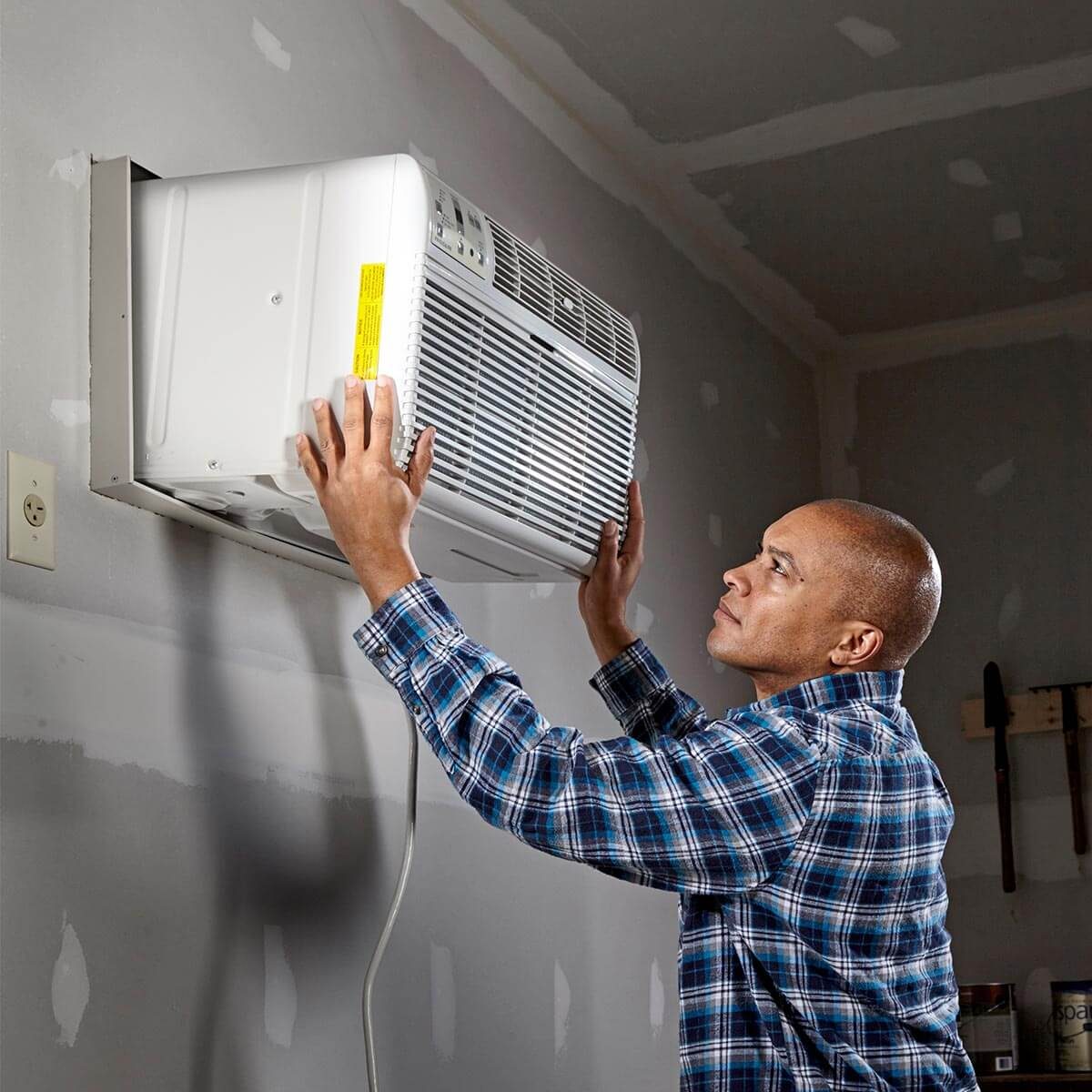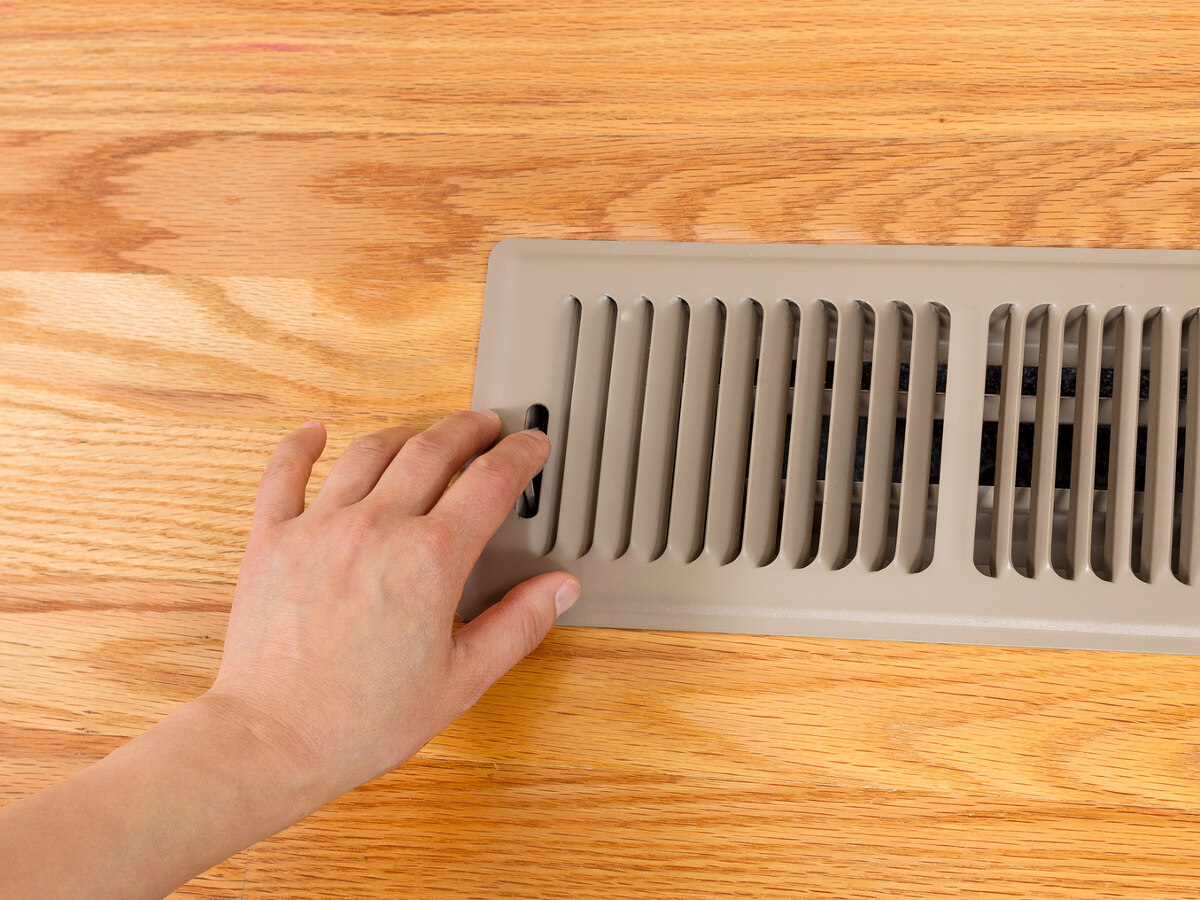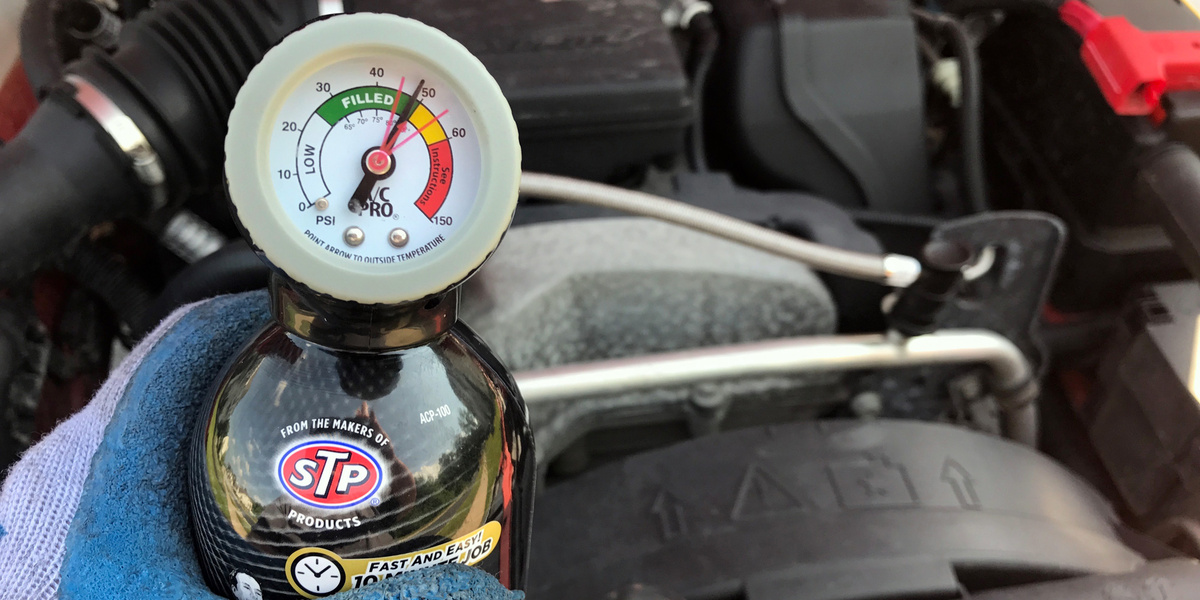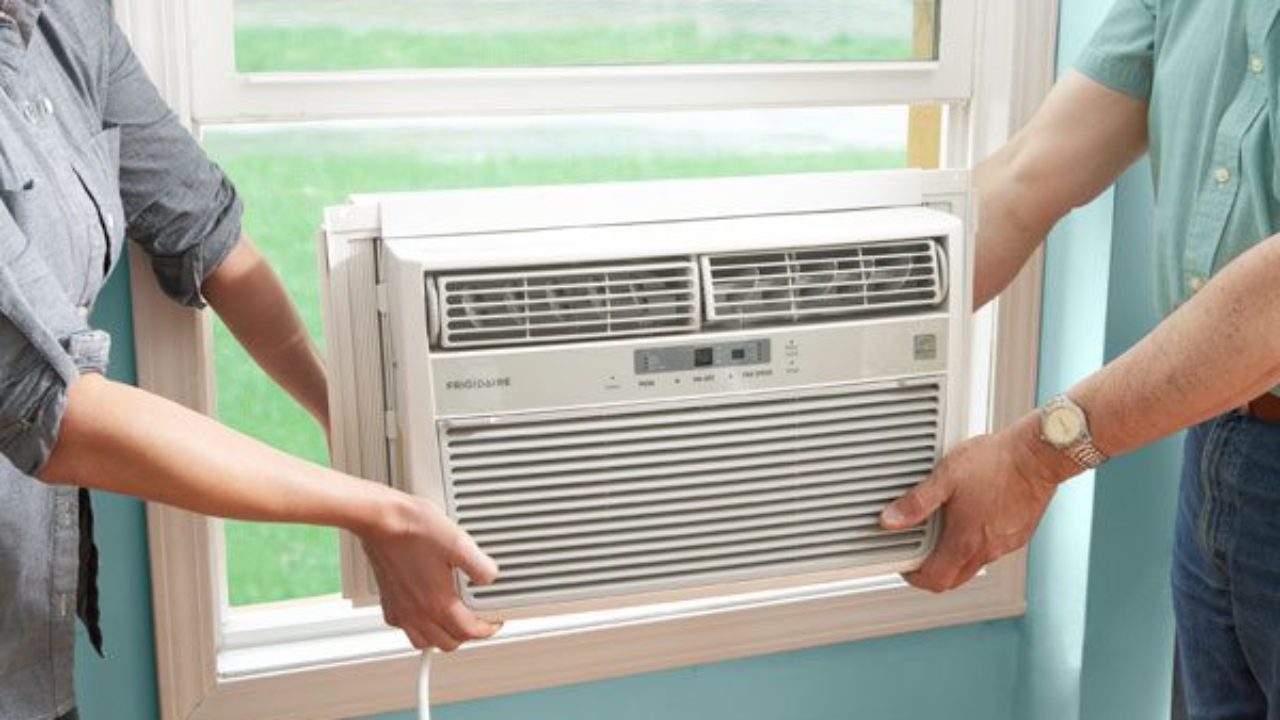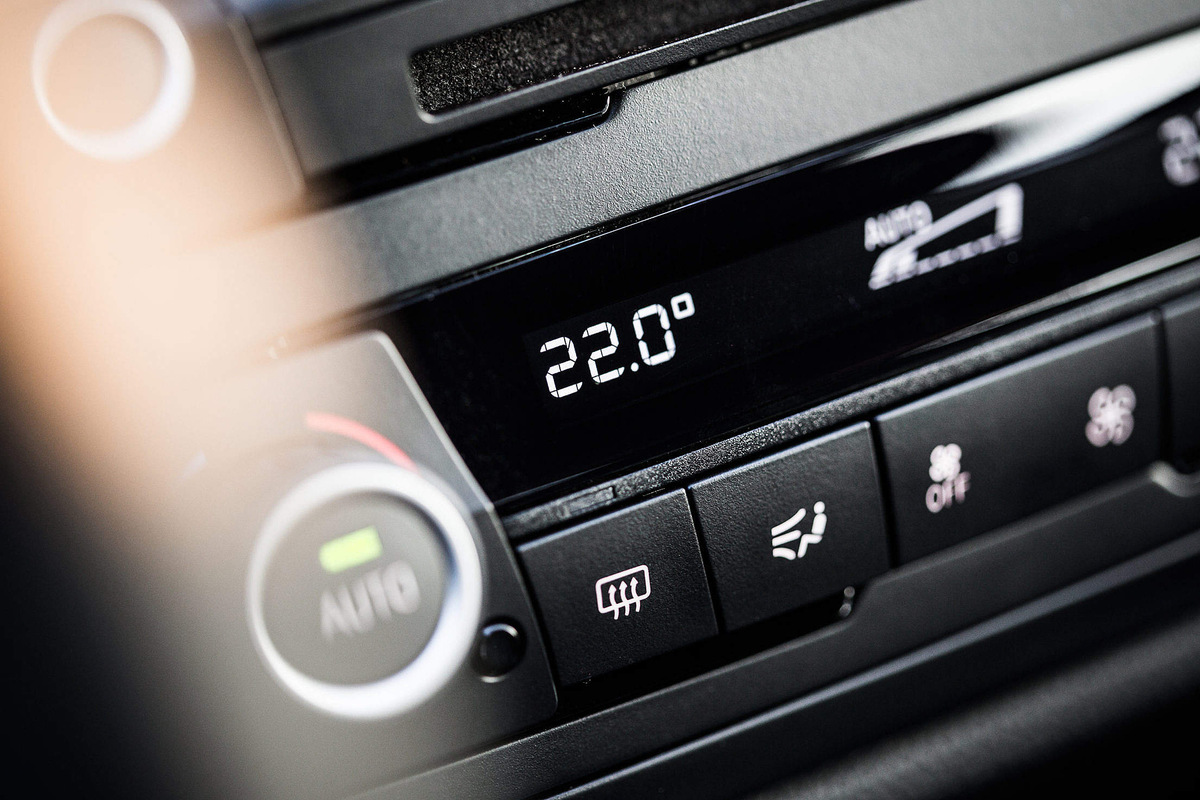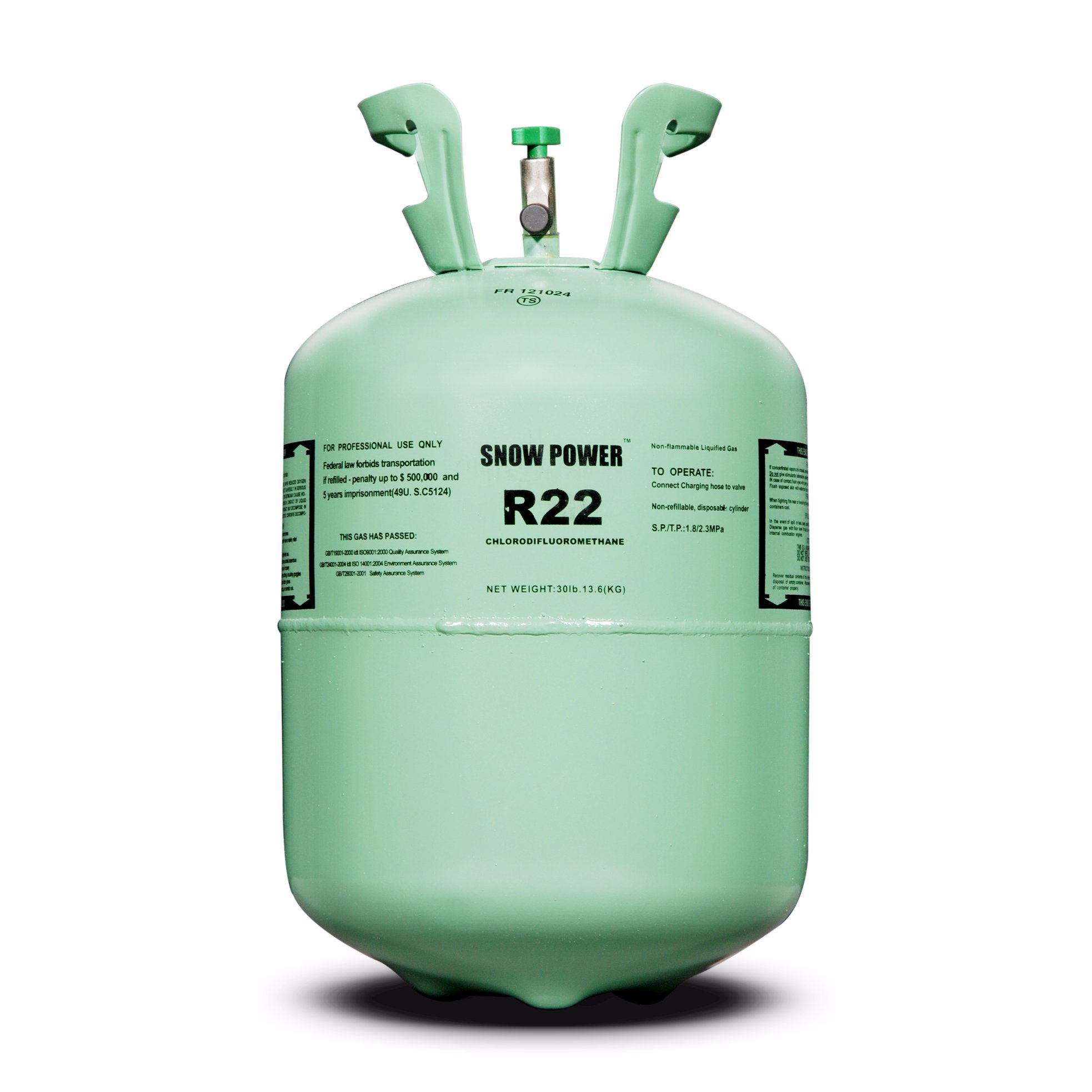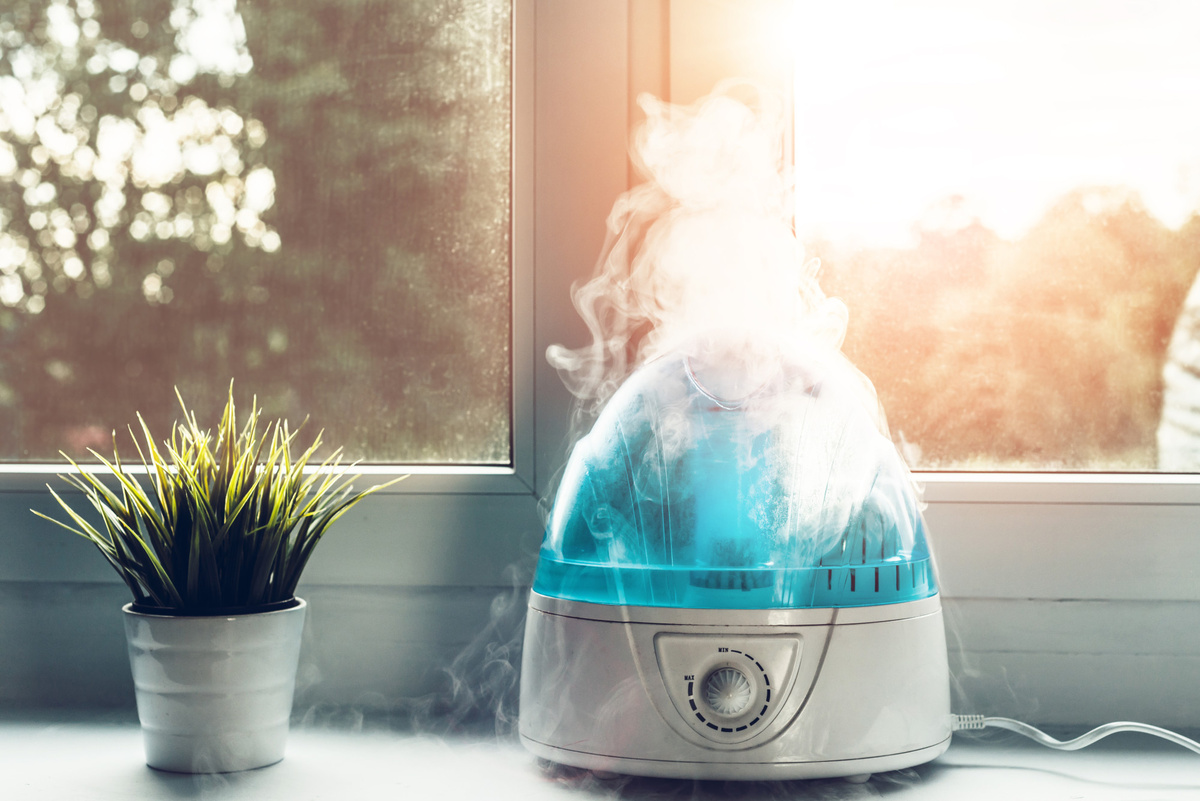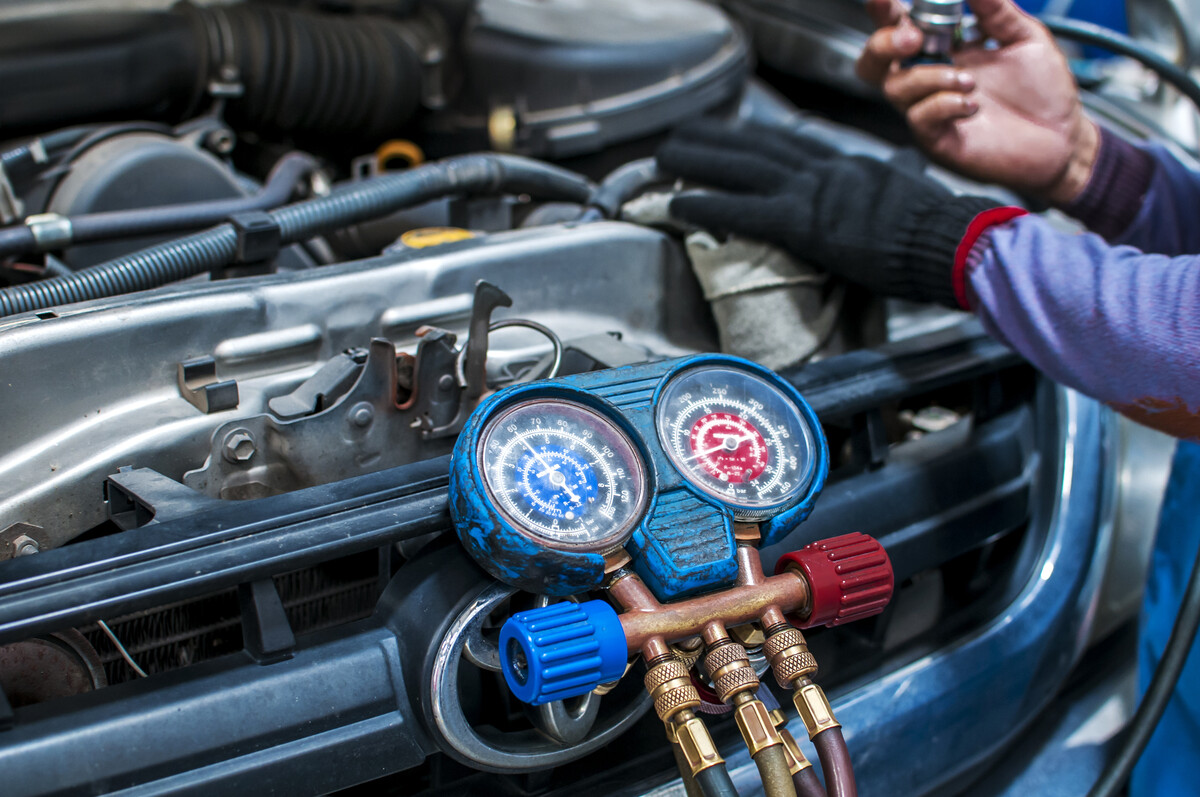Home>Home Maintenance>How To Quiet An Air Conditioning Unit
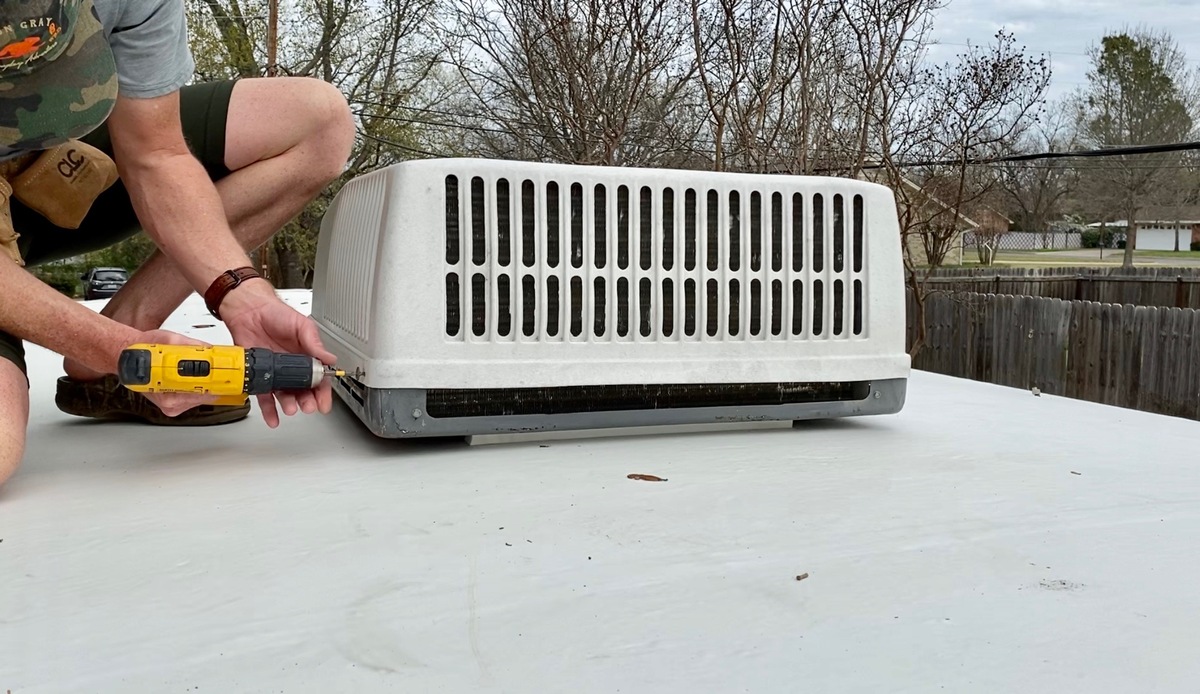

Home Maintenance
How To Quiet An Air Conditioning Unit
Modified: March 6, 2024
Learn how to effectively quiet your air conditioning unit with these home maintenance tips. Keep your home comfortable and peaceful all summer long.
(Many of the links in this article redirect to a specific reviewed product. Your purchase of these products through affiliate links helps to generate commission for Storables.com, at no extra cost. Learn more)
Introduction
Having air conditioning in our homes is a great luxury, especially during hot summer months. It keeps us cool and comfortable, allowing us to escape from the scorching heat. However, there can be some downsides to having an air conditioning unit, and one of the most common issues homeowners face is noise. The constant humming, buzzing, or rattling sound emitted by an air conditioning unit can be both annoying and disruptive, especially when trying to relax or sleep.
In this article, we will explore various methods to quiet an air conditioning unit and restore tranquility to your home. We’ll cover everything from understanding the noise levels to identifying the source of the noise, as well as regular maintenance practices and soundproofing techniques that can significantly reduce or eliminate the noise altogether.
So, if you’re tired of being disturbed by the noisy operation of your air conditioning unit, read on to discover effective and practical solutions to quiet it down.
Key Takeaways:
- Keep your air conditioning unit quiet by understanding noise levels, identifying sources of noise, and performing regular maintenance. Insulate the unit and use soundproofing materials for effective noise reduction.
- Maintain proper airflow and seek professional help if needed to ensure a peaceful and comfortable environment in your home, free from the disruptive noise of your air conditioning unit.
Understanding the Noise Levels
Before diving into the different ways to quiet an air conditioning unit, it’s important to understand the different levels of noise that can be produced. Air conditioning noise is typically measured in decibels (dB), which is a unit that measures the intensity of sound. Here’s a general guide to help you understand noise levels:
- 30 dB: Almost silent, similar to a whisper or leaves rustling in the wind.
- 50 dB: Quiet, comparable to the sound of rainfall or a light conversation.
- 60 dB: Moderate, similar to background music or the noise level in an office.
- 70 dB: Noisy, like a vacuum cleaner or a busy street.
- 80 dB: Very noisy, similar to a blender or a crowded restaurant.
- 90 dB or above: Extremely loud, like a chainsaw or a rock concert.
Most modern air conditioning units operate within the range of 50-60 dB, which is considered acceptable for residential areas. However, if your unit reaches 70 dB or higher, it can become a significant disturbance. By understanding the noise levels of your air conditioning unit, you can better assess the noise-reducing techniques needed to achieve a quieter environment.
Identifying the Source of Noise
Once you’ve determined that your air conditioning unit’s noise levels are higher than desired, the next step is to identify the source of the noise. Here are some common sources of air conditioning noise:
- Fan Motor: The fan motor is responsible for circulating air throughout the unit. Over time, it can become worn out or damaged, leading to excessive noise.
- Compressor: The compressor is the heart of the air conditioning unit and is responsible for cooling the air. If the compressor is faulty or malfunctioning, it can produce loud noises.
- Vibration: Air conditioning units can vibrate due to loose components, misalignment, or improper installation. Vibrations can amplify noise and create a disruptive environment.
- Air Ducts: The air ducts that deliver cool air throughout your home can sometimes create noise if they are improperly sealed or if there are obstructions inside.
- Filters: Dirty or clogged air filters can cause airflow restrictions, resulting in increased noise levels as the unit works harder to cool your home.
By identifying the specific source of the noise, you can take targeted measures to address and reduce it. It may require inspecting the unit, visually and audibly, to trace where the sound is coming from. In some cases, it may be necessary to consult the manufacturer’s manual or seek professional assistance to pinpoint the source accurately.
Once you’ve identified the source of the noise, you can proceed with the appropriate steps to alleviate the problem and restore a quieter operating air conditioning unit.
Regular Maintenance for Noise Reduction
Performing regular maintenance on your air conditioning unit is essential not only for its overall performance but also for noise reduction. Here are some maintenance practices that can help minimize noise:
- Clean or Replace Air Filters: Dirty or clogged air filters can restrict airflow, causing the unit to work harder and generate more noise. Clean or replace the filters regularly to ensure proper airflow and reduce noise levels.
- Tighten Loose Components: Over time, the vibrations from the unit’s operation can loosen screws, bolts, and other components. Inspect the unit and tighten any loose parts to reduce noise caused by vibrations.
- Lubricate Moving Parts: Friction between moving parts can create noise. Lubricating these parts, such as bearings and fan motors, can reduce friction and minimize noise levels.
- Clean the Condenser Coil: The condenser coil is located in the outdoor unit and can accumulate dirt and debris, leading to decreased efficiency and increased noise. Regularly clean the condenser coil to maintain optimal performance and reduce noise.
- Inspect and Clean Fan Blades: Dust, dirt, and debris can accumulate on the fan blades, causing imbalance and increased noise. Carefully inspect and clean the fan blades to ensure smooth operation and minimize noise.
- Check for Air Duct Leaks: Leaky air ducts can create whistling or rattling noises as air escapes. Inspect the air ducts for any leaks and seal them properly to reduce noise and improve overall efficiency.
By incorporating these regular maintenance practices into your air conditioning unit’s care routine, you can significantly reduce noise levels and ensure its optimal performance. Remember to consult the manufacturer’s manual for specific maintenance instructions and recommendations.
Insulating the Air Conditioning Unit
Insulating your air conditioning unit is an effective method to reduce noise by minimizing vibrations and containing sound within the unit. Here are some insulation techniques you can apply:
- Use Rubber or Foam Pads: Place rubber or foam pads underneath the air conditioning unit to absorb vibrations and reduce noise transmission to the surrounding area. These pads act as buffers and minimize contact between the unit and the ground.
- Install Soundproofing Blankets: Soundproofing blankets are specially designed to absorb sound waves and reduce noise levels. Wrap the air conditioning unit with these blankets to dampen vibrations and minimize noise emission.
- Enclose the Unit: Erecting a soundproof enclosure around the air conditioning unit can provide significant noise reduction. The enclosure can be made of materials like wood or acoustic panels and should have sufficient ventilation to allow proper airflow.
In addition to insulating the air conditioning unit itself, it’s also important to insulate any air ducts or pipes that may be carrying noise. Apply foam insulation sleeves or tape to the ducts and pipes to reduce sound transmission and further minimize noise levels.
Remember, when insulating your air conditioning unit, be cautious not to restrict airflow or trap heat. Proper ventilation is crucial to ensure the unit’s optimal performance and prevent overheating.
By effectively insulating your air conditioning unit, you can significantly reduce noise levels and create a quieter and more comfortable environment in your home.
Regularly clean or replace the air filter to reduce noise from the air conditioning unit. A dirty filter can cause the unit to work harder and create more noise.
Using Soundproofing Materials
Soundproofing materials can play a crucial role in reducing noise emitted by your air conditioning unit. These materials are designed to absorb and block sound waves, effectively minimizing noise transmission. Here are some commonly used soundproofing materials and techniques:
- Acoustic Panels: Install acoustic panels on the walls surrounding the air conditioning unit. These panels are made of materials that absorb sound, such as foam or fiberglass, and can significantly reduce noise levels in the room.
- Weatherstripping: Apply weatherstripping to the gaps and openings around windows, doors, and vents to minimize outdoor noise from entering your home. This can help create a quieter environment and reduce overall noise levels.
- Mass Loaded Vinyl (MLV): MLV is a dense and flexible material that is highly effective at blocking sound. Install MLV barriers around the air conditioning unit or in areas where noise is likely to escape, such as walls or vents.
- Double Glazing: Consider upgrading windows to double-glazed or laminated glass. These windows have two layers of glass with a layer of air or gas in between, providing excellent sound insulation and reducing external noise.
- Seal Cracks and Gaps: Inspect your home for any cracks or gaps where noise can enter. Use caulking or sealant to fill these gaps and create a more soundproof environment.
It’s important to note that while soundproofing materials can effectively reduce noise levels, they also have limitations. Complete sound elimination may not be achievable, but using a combination of different soundproofing techniques can significantly enhance the overall quietness of your home.
Consulting with a professional or doing some research on the specific soundproofing materials and techniques that best suit your needs can further enhance the effectiveness of your efforts to quiet your air conditioning unit.
Maintaining Proper Airflow
Maintaining proper airflow is essential for the efficient and quiet operation of your air conditioning unit. Poor airflow can lead to increased noise levels and reduced cooling performance. Here are some tips to ensure proper airflow:
- Clean Air Vents and Grilles: Regularly clean the air vents and grilles in your home to prevent dust and debris from obstructing airflow. A clean and unobstructed pathway allows air to flow smoothly and reduces noise caused by restricted airflow.
- Clear Surrounding Area: Ensure that the area surrounding the outdoor unit is clear of any obstructions, such as leaves, branches, or debris. These obstructions can inhibit airflow and contribute to increased noise levels. Keep the area clean and free from any clutter.
- Check Ductwork for Blockages: Inspect the air ducts for any blockages or leaks that could impede airflow. Blockages can cause increased pressure and noise as the air tries to pass through restricted channels. Seal any leaks and remove any blockages to maintain proper airflow.
- Keep Registers Open: Ensure that the supply and return air registers throughout your home are fully open. Closing registers can disrupt the airflow balance, leading to increased noise levels and reduced efficiency of the air conditioning system.
- Balance the Airflow: If you notice that certain areas of your home receive less airflow, while others are excessively cooled, you may need to balance the airflow. Consult a professional to adjust the dampers or install inline fans to distribute air more evenly and reduce noise caused by inconsistent airflow.
By maintaining proper airflow, you can promote a more efficient and quieter operation of your air conditioning unit. Additionally, proper airflow contributes to better temperature distribution and overall comfort in your home.
If you’re unsure about how to optimize the airflow in your air conditioning system, consider consulting a professional HVAC technician who can assess your system and provide guidance on improving airflow for noise reduction and optimal performance.
Seeking Professional Help
If you’ve followed the previous steps and are still experiencing excessive noise from your air conditioning unit, it may be time to seek professional help. HVAC technicians have the expertise and knowledge to diagnose and resolve more complex noise issues. Here are some reasons why you might consider contacting a professional:
- Expert Diagnosis: HVAC professionals can accurately identify the source of the noise and determine the underlying cause. They have the necessary tools and experience to inspect and troubleshoot issues that may be beyond the scope of a homeowner’s abilities.
- Repairs and Replacements: In some cases, components of the air conditioning unit may need to be repaired or replaced to reduce noise levels. HVAC technicians can perform these tasks efficiently and ensure that the unit operates quietly and effectively.
- Noise Reduction Techniques: Professionals can recommend and implement advanced noise reduction techniques specific to your air conditioning unit. These techniques may involve the use of specialized materials or modifications to the unit itself to minimize noise.
- Manufacturer’s Warranty: If your air conditioning unit is still under warranty, it’s important to consult a professional to address any noise-related issues. Attempting DIY repairs may void the warranty, and you could end up being responsible for the full cost of repairs or replacements.
- Peace of Mind: Hiring a professional not only solves your noise problem but also provides peace of mind. You can rest assured that the job is being handled by a qualified technician, reducing the risk of further damage or complications.
When selecting an HVAC professional, consider their experience, certifications, and reputation within the industry. Consult multiple technicians to get quotes, and ask for references from past clients if needed.
Remember, while DIY techniques can be beneficial in many cases, certain noise issues require the skills and expertise of a professional. Seeking professional help ensures that the noise problem is properly diagnosed and resolved, improving the overall comfort and tranquility of your home.
Conclusion
Dealing with a noisy air conditioning unit can be frustrating and disruptive to your daily life. Fortunately, there are numerous methods to quiet an air conditioning unit and restore peace and tranquility to your home. Understanding the noise levels, identifying the source of the noise, and performing regular maintenance are all essential steps in reducing noise levels.
Insulating the air conditioning unit and using soundproofing materials can greatly contribute to noise reduction. Insulation techniques such as rubber or foam pads and soundproofing blankets can absorb vibrations and contain sound within the unit. Soundproofing materials like acoustic panels and mass loaded vinyl can block sound waves and minimize noise transmission to the surrounding areas.
Maintaining proper airflow is crucial for the efficient and quiet operation of your air conditioning unit. Cleaning air vents and grilles, clearing the surrounding area, checking for ductwork blockages, and balancing the airflow help to ensure optimal performance and reduce noise levels.
If all else fails, seeking professional help from HVAC technicians is a wise option. Professionals can diagnose complex noise issues, perform repairs or replacements, and offer advanced noise reduction techniques tailored to your specific air conditioning unit. Their expertise provides peace of mind and helps to avoid potential warranty issues.
In conclusion, a quiet and efficient air conditioning unit is achievable with the right approach and maintenance routine. By implementing the strategies discussed in this article, you can enjoy a peaceful and comfortable environment in your home, free from the disruptive noise of your air conditioning unit.
Frequently Asked Questions about How To Quiet An Air Conditioning Unit
Was this page helpful?
At Storables.com, we guarantee accurate and reliable information. Our content, validated by Expert Board Contributors, is crafted following stringent Editorial Policies. We're committed to providing you with well-researched, expert-backed insights for all your informational needs.

